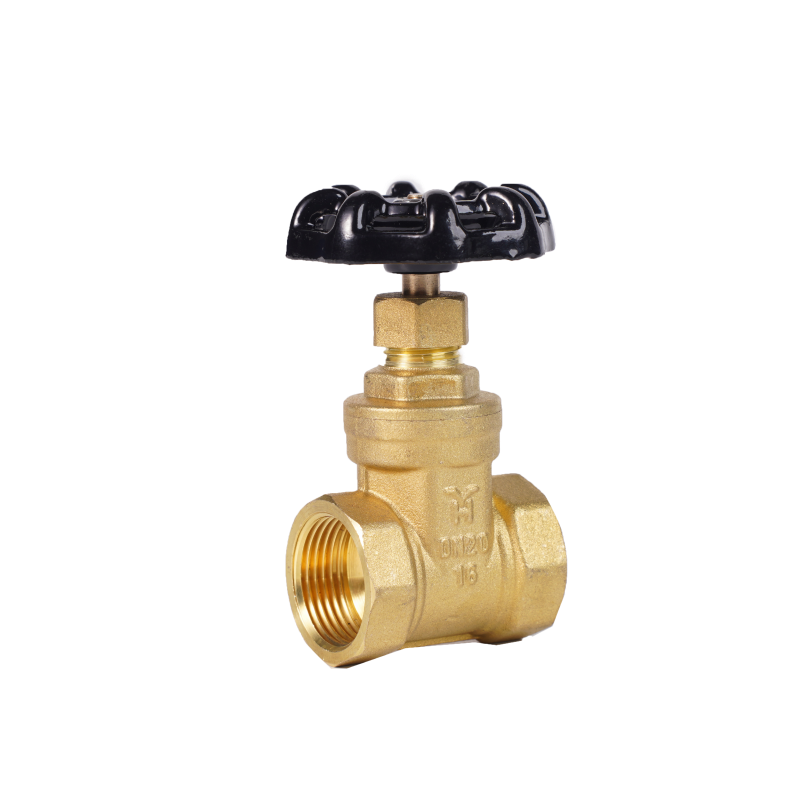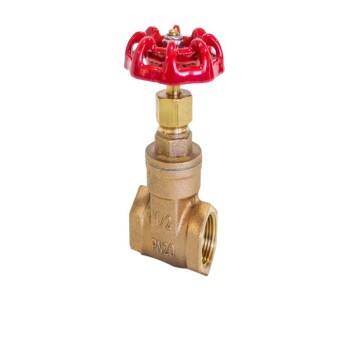Understanding Gate Valves in Modern Plumbing Systems
Gate valves represent one of the most fundamental components in plumbing systems, serving as crucial control points for water flow in both residential and commercial applications. These robust valves operate on a simple yet effective mechanism, using a metal gate that moves up and down to control water flow. While their design dates back centuries, gate valves continue to play a vital role in contemporary plumbing installations, offering unique advantages that make them indispensable in specific scenarios.
The distinctive feature of a gate valve lies in its ability to provide a full, unobstructed flow path when completely open, making it particularly valuable in applications where maintaining maximum flow capacity is essential. Understanding when and where to implement gate valves can significantly impact the efficiency and longevity of your plumbing system.
Primary Applications of Gate Valves
Main Water Supply Control
One of the most common and important applications for gate valves is at the main water supply entrance of buildings. These valves excel in this position because they provide a reliable shut-off mechanism for the entire water system. When installed as the main water control valve, a gate valve allows property owners to completely stop water flow during emergencies or maintenance work.
The durability and reliability of gate valves make them ideal for this critical control point. Since main water supply valves are not frequently operated but must work flawlessly when needed, the robust construction of gate valves provides the necessary dependability for this essential function.
High-Pressure Applications
Gate valves demonstrate exceptional performance in high-pressure plumbing situations. Their design allows them to withstand substantial pressure while maintaining their integrity over long periods. In commercial and industrial settings where water pressure exceeds residential standards, gate valves prove particularly valuable due to their robust construction and reliable sealing capabilities.
These valves are often specified for high-pressure applications because their straight-through design minimizes pressure loss when fully open. This characteristic makes them especially suitable for systems where maintaining pressure is crucial for operational efficiency.

Advantages of Gate Valve Implementation
Full Flow Characteristics
When fully open, gate valves offer minimal resistance to flow, making them highly efficient in situations where maintaining maximum flow rate is critical. The straight-through design ensures that water can move through the valve with virtually no obstruction, resulting in minimal pressure loss. This feature becomes particularly important in applications where every bit of flow capacity matters.
The unimpeded flow characteristic also means less wear on the valve components over time, as there are no obstacles in the flow path to create turbulence or erosion when the valve is fully open. This contributes to the long-term durability and reliability of the installation.
Durability and Longevity
Gate valves are built to last, with robust construction that can withstand years of service under proper conditions. The simple operating mechanism, consisting primarily of the gate and stem assembly, means fewer components that could potentially fail. This simplicity translates to reduced maintenance requirements and longer service life.
The durability of gate valves is particularly evident in their ability to maintain their sealing effectiveness over time. When properly maintained, these valves can provide reliable service for decades, making them a cost-effective choice for long-term installations.
Installation Considerations and Best Practices
Proper Positioning and Access
The installation location of a gate valve requires careful consideration to ensure optimal performance and accessibility for operation and maintenance. These valves should be installed in areas where they can be easily reached for manual operation, yet protected from potential damage or unauthorized access. Adequate clearance around the valve is essential to allow for proper operation of the handwheel.
In outdoor installations, gate valves should be protected from the elements to prevent corrosion and ensure smooth operation. This might involve installing valve boxes or creating access panels that shield the valve while maintaining accessibility.
Maintenance Requirements
While gate valves are known for their reliability, they do require periodic maintenance to ensure optimal performance. Regular inspection of the valve stem, packing, and bonnet can help identify potential issues before they become serious problems. It's recommended to operate gate valves occasionally to prevent seizing, particularly in applications where they remain in one position for extended periods.
Proper maintenance includes checking for leaks around the stem packing, ensuring the handwheel operates smoothly, and verifying that the valve achieves a complete seal when fully closed. These routine checks can significantly extend the service life of the valve.
Common Questions About Gate Valves
How Often Should Gate Valves Be Operated?
Gate valves should be operated at least once every six months to prevent seizing and ensure proper functionality. This regular exercise helps maintain the internal components and verifies that the valve will work when needed. However, avoid partial operation as gate valves are designed to be either fully open or fully closed.
What Are the Signs of a Failing Gate Valve?
Common indicators of gate valve failure include persistent leaking around the stem, difficulty in operation, inability to achieve a complete shut-off, and visible corrosion or damage to external components. If any of these signs appear, professional inspection and potential replacement may be necessary.
Can Gate Valves Be Repaired or Must They Be Replaced?
Many gate valve issues can be addressed through repairs, such as replacing the packing or rebuilding the stem assembly. However, if the gate or valve body shows significant wear or damage, complete replacement is usually the more cost-effective and reliable solution.
What's the Expected Lifespan of a Gate Valve?
With proper installation and maintenance, a quality gate valve can last 20-30 years or more in residential applications. However, factors such as water quality, frequency of operation, and environmental conditions can significantly impact longevity. Regular maintenance and proper operation can help maximize the valve's service life.

